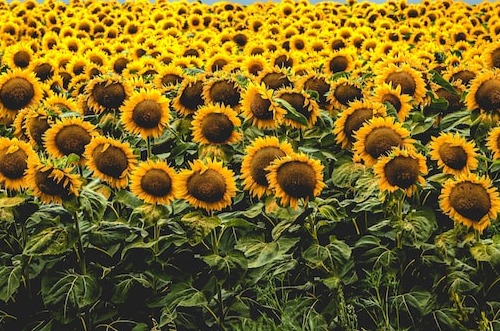
In W18 in the sunflower landscape, the European Commission (EC) announced that it had come to an agreement with Poland, Slovakia, Hungary, Romania, and Bulgaria to limit the supply of Ukrainian wheat, corn, rapeseed, and sunflower from May 2 until June 5. The EC will furthermore provide farmers affected by grain surpluses on the market with USD 109.20M in aid in exchange for the cancellation of the unilateral ban on the import of any agricultural products from Ukraine introduced on their own. Instead of an outright ban, the new agreement should facilitate the transfer of grain imports from Ukraine for their transit to other countries. Future tax limits on imports of Ukrainian goods, including sunflower oil, may also be implemented by the EU.
The Minister of Agriculture of Moldova also intends to join the EU's decision to introduce temporary measures on the import of wheat, corn, rapeseed, and sunflower originating from Ukraine while allowing their transit to ease the oversupply of grain in Moldovan warehouses. Ukraine has been the top supplier of sunflower seeds, sunflower meal, and sunflower oil to the EU for 43 weeks of the current season (as of April 23, 2023). Compared to the 2021/22 season, Ukraine's proportion of the EU's sunflower seed suppliers, which was only 12.7%, increased to 85.5% in the 2022/23 season.
In addition, the Ukrainian sunflower seed market has been showing a negative pricing trend since mid-April. As of May 4, the demand prices for sunflower seeds declined by USD 32.77-40.96/MT and now range between USD 363.2-417.84/MT. This is mainly due to the fact that oil refineries have been less active in their purchases of this crop, which has led to an increase in oil and meal residues due to some Eastern European nations' temporary import ban on sunflower oil. In Turkey, 150 kg of oil sunflower seeds were supplied to farmers in the Emet district in Kütahya by the Ministry of Agriculture and Forestry and the Kütahya Special Provincial Administration. Meanwhile, in Russia, the Krasnodar Territory planted spring crops on more than 1M hectares, or 64% of the planned area, including 313.2K hectares of sunflowers. Additionally, starting on May 5, Rosselkhoznadzor prohibits sunflower and maize seeds from eight shipping locations in a number of supplier nations, including Turkey, Germany, France, Hungary, and Kazakhstan. This is because the seeds contained objects that had been quarantined for the Russian Federation and the EAEU members.




